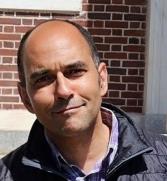Gary Shaw - professor of medieval history at Wesleyan University, on Monday, 20 November 2023 at at 17:30-19:00 in the Polish Academy of Sciences (Działyński Palace, Stary Rynek 78/79, 2nd floor), will hold a guest seminar on "The Return of Science—Historical Reality Reviewed."
The Return of Science—Historical Reality Reviewed
Abstract:
In 1999, History & Theory initiated a discussion in a theme issue on the Return of Science. While that theme issue was in certain ways premature in its capacity to ride the wave of the historiographical future of the 2000s and onwards, it was quite right in determining there were manifold culture shifts underway. These included thinking on historiography but were in no sense limited to them. The general intellectual and wider cultural landscape was re-orienting its prejudices, making greater way for the importance of science, of nature, but of what we called mainly within the editorial cadre, of the real. It was the real that was returning, so it still seemed to me. The extent of the cultural reorientation was underestimated, it now seems. In practical terms, the role of government and the public sphere in pushing science and moving towards repudiating the humanities turned out to be very important and has entrenched frameworks.
In terms of historical theory, however, and the practices of historians, there was a significant and powerful shift in some quarters. The political and ethical valance was strengthened by thinking about climate change, global processes, that allowed the Anthropocene to emerge. This was widely a matter of scale and issues of scale. Simultaneously, various tendencies understanding themselves as friendly to the call of the present of history, its surfaces, its memories clustered somehow in matter now and objects perduring tuned attention in concern with interdisciplinary developments elsewhere to things that might speak, to animals that might act. Among the many other tendencies that have since flourished, the so-called digital age and its links to the geographic and computational have opened additional vistas. The links to the environment offer a complete loop of real and often scientific interests.
This has led to a serious re-orientation of some of the historically sensitive disciplines, including history itself. The oddity, however, is that the effect on historical theory and philosophy has been in certain respects narrowing or re-narrowing. With the important exception of time—and the new metaphysics thereof—a lot of historical theory has returned to a sort of parsing of stages of development, balancing the character of global history’s focus on one sort of cardinal point of the compass or another, global souths and norths playing out the rhetoric of former Easts and Wests, Occidents and Orients. Under this rubric, I might also include the intense concern with trying to understand the way the present moment is manifesting itself.
History’s central self-understanding has in some ways been able to return to its comfortable real, pushing away excessive doubt about its writing manners and investigative methods. Indeed, the internal character of historiographical critique has been an area that has perhaps suffered. It seems timely to ask whether conceptual critique and ontological reflection on the status of history need a somewhat enlarged place again. I want to ask this question in this way: what is the place of a critique of historical language within the practice of the return of the real? Is there even a complacency of the political within the return to the real, as if some values are beyond critique and are buoyed by a sense of the obvious and the frisson of commitment that the emotionalism of the return of the real has often enabled.
Seminar Readings:
![]() David Gary Shaw, "The Return of Science." History and Theory, vol. 38, no. 4, 1999: 1-9.
David Gary Shaw, "The Return of Science." History and Theory, vol. 38, no. 4, 1999: 1-9.
![]() Shahzad Bashir and David Gary Shaw, “Race, History, and Understanding.” History and Theory, Virtual Issue 3, February 2021: 1-7.
Shahzad Bashir and David Gary Shaw, “Race, History, and Understanding.” History and Theory, Virtual Issue 3, February 2021: 1-7.
Gary Shaw
David Gary Shaw is professor of medieval history at Wesleyan University. He is a member of the medieval studies program in addition. A graduate of McGill University in philosophy and history, he completed his doctoral work at Balliol College in the University of Oxford. He has always taught at Wesleyan University, where the journal History & Theory is based. He joined the editorial committee of the journal in 1996 and has worked on it since, notably conceiving and editing six theme issues in addition to evaluating hundreds of articles. The theme issues extend from The Return of Science (1999) to Theorizing Race, Past and Present (2021), and others have treated agency, animals, religion, and knowledge. As a medieval historian, he is nearing completion of a study of mobility in England, called “Travelling to the Future: Networks of Modernity in the Middle Ages”. Previously, he published The Creation of a Community: The City of Wells in the Middle Ages (1993) and Necessary Conjunctions: The Social Self in the Middle Ages (2005). At Wesleyan, he has served as chair of the department of history, dean of the social sciences, and chair of the faculty. [Academia.edu]
Na seminarium zaprasza Polskie Towarzystwo Historyczne oraz Komisja Teorii i Historii Historiografii oraz Metodologii Historii Komitetu Badań Historycznych PAN.
Seminarium organizowane jest w ramach realizacji grantu ,,Człowiek twórcą historii" w ramach umowy nr NdS/536174/2021/2021
©ed | 2023


